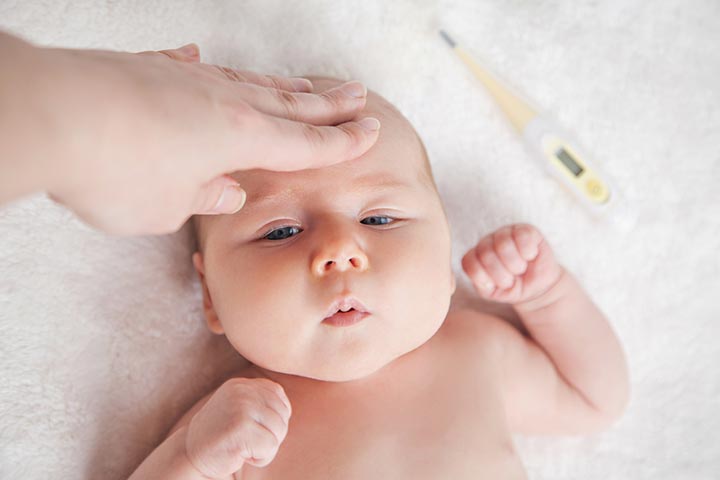
Image: Shutterstock
If your little bundle of joy arrived before your 37th week of pregnancy, you’ve got a premature baby on your hands. Most parents of premature babies are anxious and impatient to leave the hospital’s neonatal intensive care unit. You probably breathed a sigh of relief the second you finally brought your baby home, until you realized that you had to take care of your tiny miracle all by yourself. However, there is no need to be worried as caring for a preterm newborn is similar to caring for a full-term baby. Besides, doctors will only allow you to take your newborn home if they are confident that the infant will be healthy at home without intensive care. But, like all babies, your little one will need to be cared for too.
Here are 5 things you need to know about taking care of a premature baby:
1. The Right Temperature
Image: Shutterstock
One way to know for certain that your baby is in the clear is to ensure that they are in the right temperature. Your infant should be at a temperature that is comfortable and safe, which means that adding layers of clothing or removing unwanted layers is the most efficient strategy to achieve this.
Don’t overdo the crib or overburden the bed with blanks, shawls and other drapes. This may result in their surroundings elevating to a temperature that your newborn can’t handle. One good way to keep track of the temperature is via a digital thermometer. Make sure to keep the auxiliary temperature 36.5 and 37.4 degrees celsius or 97.7 to 99.5 degrees Fahrenheit. But note that the recommended room temperature for sleeping is between 20 to 24 degrees Celsius. So, keep their environment pleasant and airy.
2. Bathe Your Baby Safely
Image: Shutterstock
In order to ensure that your baby is safe while taking a bath, make sure the water is warm rather than hot. Aim for bathwater that is around 100 degrees Fahrenheit or 38 degrees Celsius. Your baby doesn’t need a slew of fancy hair products just yet so using plain water will do. You also don’t need to use any body washes or liquid cleaners in the bathtub for the first month. Sticking to plain water is the best way to ensure the safety of your baby. Similarly, keep away from lotions and oils during the first month. Your newborn’s skin is great as it is. It’s also recommended to give your baby a sponge bath for the first few weeks.
3. Put Your Baby To Sleep Properly
Image: Shutterstock
You can help your infant sleep better by creating a comfortable and inviting environment. Improve the atmosphere of the nursery by dimming the lights and lowering the temperature. Make sure the room is quiet and peaceful. It’s important to keep in mind that preterm babies are more likely to wake up hungry at regular intervals in the night than full term newborns. This is because the smaller your baby is, the more frequently they need to nurse.
4. Practice Kangaroo Care And Continue Breastfeeding
Image: Shutterstock
Dress your baby up in just a diaper in a warm room at home and sit the baby on your chest. Now move their head to one side and enjoy skin to skin contact. Kangaroo care should be practiced as much as possible. Make it a regular activity to do with your newborn. Kangaroo care is a great way to boost parent-child connection as it is a bonding experience. It also has several benefits like stimulating breastfeeding, stabilizing an infant’s heart rate and respiratory rate, improving oxygenation in your baby, controlling body temperature and promoting development in newborns (1).
5. Prepare For An Emergency
Image: Shutterstock
Babies who were admitted in neonatal intensive care units or NICU, have a greater re-hospitalization rate than the general newborn population. So if you have a premature baby, now is the time to prepare for an emergency instead of simply waiting for one to happen. Find the nearest hospital emergency room and scout out the shortest route to get there. If you suspect that your baby’s condition is critical, be prepared to contact an ambulance. Make sure you’ve saved the NICU number in your contacts for future reference. Parents should obtain Basic Life Support training before their baby is discharged as this may come handy in critical situations.
Most parents tend to be stressed about taking care of a newborn when they first come home. This anxiety only doubles when their baby is premature. They may seem so much smaller and more vulnerable. But the truth is that your baby is going to be perfectly okay with a little care and a watchful eye. What else did you do to ensure that your premature baby was safe? Let us know in the comments section!

















